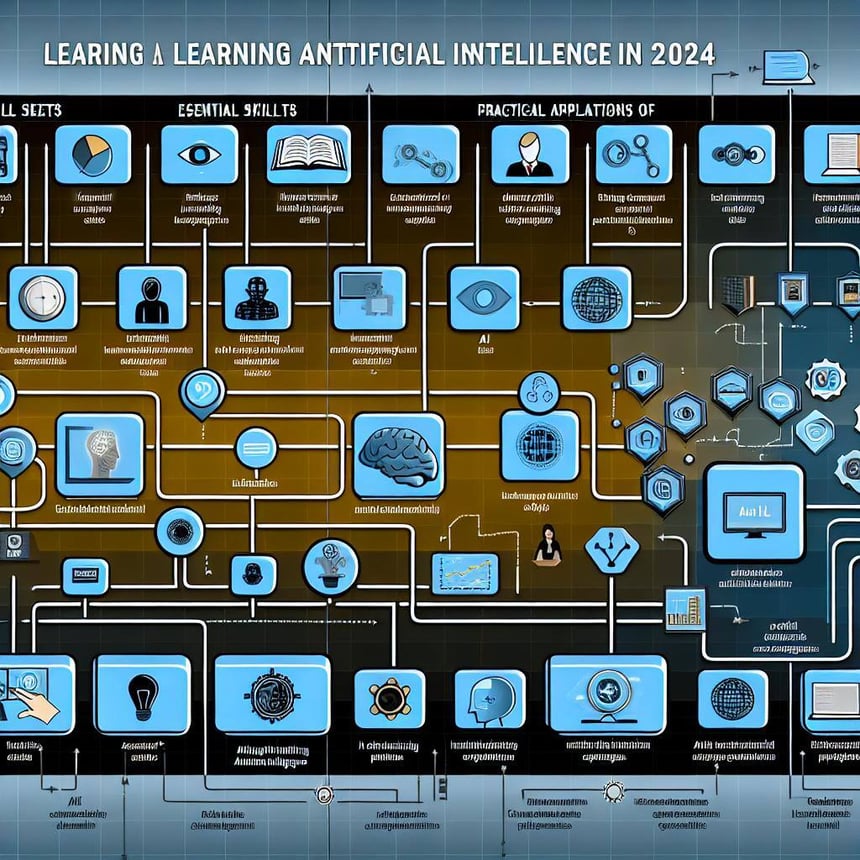The Importance of AI in 2024
Artificial Intelligence (AI) is transforming industries and revolutionizing the way we live and work. In 2024, AI is expected to play an even more significant role in shaping the future. From self-driving cars to personalized healthcare, AI has the potential to solve complex problems and enhance our daily lives.
By learning AI in 2024, you can stay ahead of the curve and take advantage of the opportunities it presents. Whether you are a student, a professional, or simply curious about the field, understanding AI will open doors to new possibilities and empower you to make a difference in the world.
Key Skills Needed for AI
To succeed in AI, there are several key skills that you need to develop:
- Mathematics and Statistics: AI involves complex algorithms and mathematical models. A solid foundation in mathematics and statistics is essential for understanding the underlying principles of AI.
- Programming: Proficiency in programming languages such as Python, Java, or C++ is crucial for implementing AI algorithms and building AI applications.
- Data Analysis: AI relies heavily on data. Being able to analyze and interpret large datasets is a valuable skill in AI.
- Machine Learning: Machine learning is a core component of AI. Understanding concepts such as supervised learning, unsupervised learning, and reinforcement learning is essential for developing AI models.
- Problem-solving: AI is all about solving problems. Developing strong problem-solving skills will help you tackle complex AI challenges and come up with innovative solutions.
Best Resources to Learn AI
There are numerous resources available to learn AI. Here are some of the best resources to get started:
- Online Courses: Platforms like Coursera, edX, and Udacity offer comprehensive AI courses taught by leading experts in the field.
- Books: Books like 'Artificial Intelligence: A Modern Approach' by Stuart Russell and Peter Norvig provide a comprehensive introduction to AI.
- Online Tutorials: Websites like TensorFlow and PyTorch provide tutorials and documentation for learning AI frameworks and libraries.
- AI Communities: Joining AI communities, such as Kaggle and AI Forums, can provide valuable insights and opportunities for collaboration.
- AI Conferences and Events: Attending AI conferences and events can give you exposure to the latest advancements in AI and provide networking opportunities.
Practical Applications of AI
AI is being applied across various industries and domains. Here are some practical applications of AI:
- Healthcare: AI is being used to develop personalized treatments, analyze medical images, and assist in diagnosis.
- Finance: AI is used for fraud detection, algorithmic trading, and risk assessment in the financial sector.
- Transportation: Self-driving cars and AI-powered traffic management systems are transforming the transportation industry.
- Retail: AI is used for recommendation systems, inventory management, and demand forecasting in the retail sector.
- Manufacturing: AI is used for quality control, predictive maintenance, and process optimization in manufacturing.
- Customer Service: AI-powered chatbots and virtual assistants are improving customer service and support.
These are just a few examples of how AI is being applied in different domains. The potential of AI is vast, and its impact is only expected to grow in the future.
Building Your Career in AI
Building a career in AI requires a combination of education, practical experience, and continuous learning. Here are some steps to help you kickstart your career in AI:
- Education: Pursue a degree in computer science, data science, or a related field to gain a solid foundation in AI.
- Hands-on Projects: Work on real-world AI projects to apply your knowledge and build a portfolio of your work.
- Networking: Connect with professionals in the AI industry through events, conferences, and online communities.
- Continuous Learning: Stay updated with the latest advancements in AI by reading research papers, attending workshops, and taking online courses.
- Specialization: Consider specializing in a specific area of AI, such as natural language processing, computer vision, or robotics, to differentiate yourself in the job market.
By following these steps and staying dedicated to learning and growth, you can build a successful career in AI and contribute to the exciting developments in this field.



.jpg)





.jpg)



.png)
0 Comments